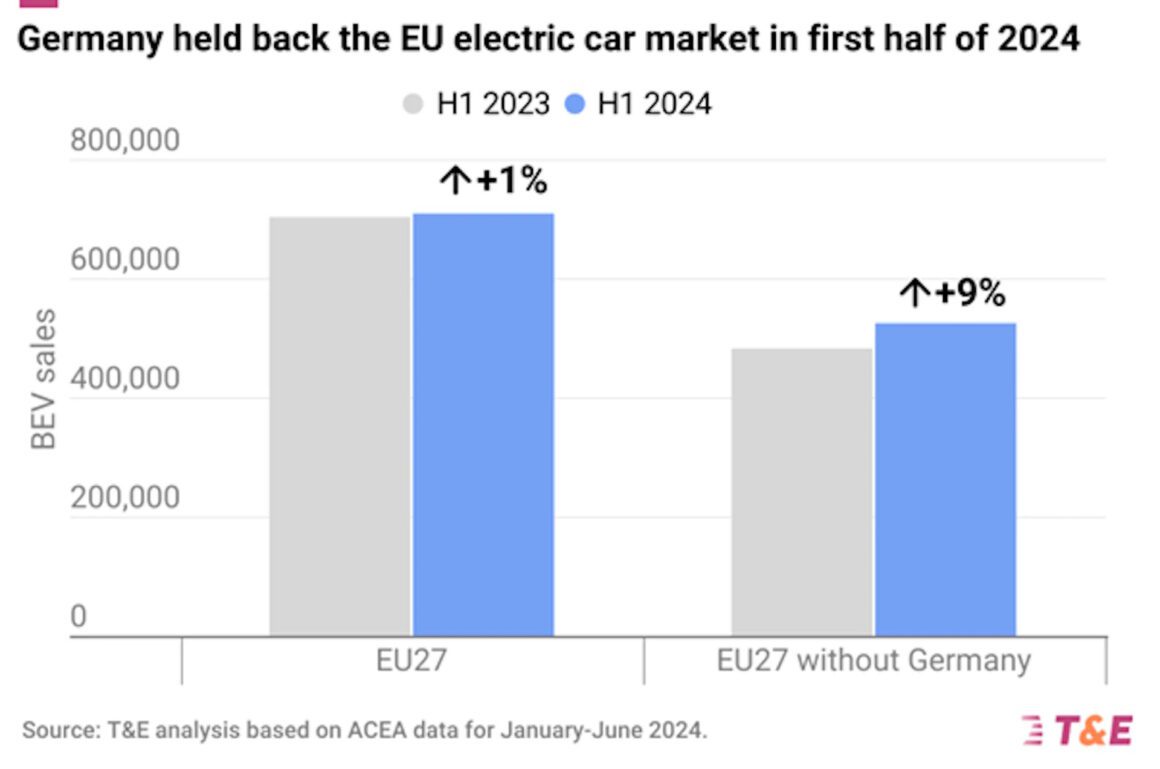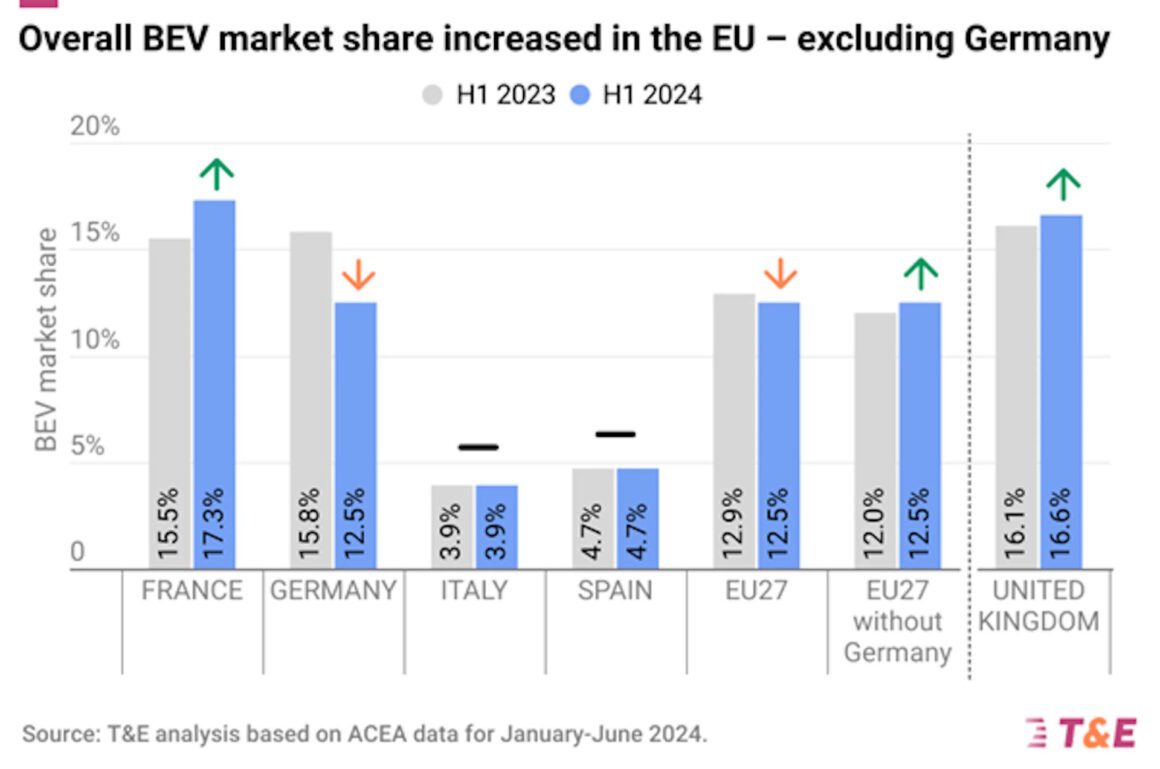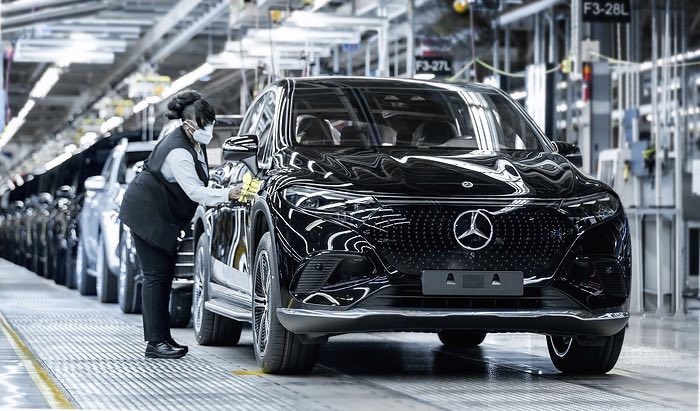Germany’s decision to abruptly end its hugely successful electric vehicle (EV) subsidy program at the end of 2023 has hit the wider European market hard, with the number of battery EVs (BEVs) across the European Union increasing by only 1.3 per cent through the first half of 2024.
Budget issues forced Germany to prematurely ended its EV purchase subsidies in December, a year earlier than expected.
According to new figures from Transport & Environment (T&E), Europe’s leading advocates for clean transport and energy, the absence of EV purchase subsidies saw German BEV sales drop by 16.4 per cent in the first half, causing the EU to register marginal growth of just 1.3 per cent over the first six months of 2024.
Excluding Germany, however, BEV sales increased by 9.4 per cent on average across the rest of the European Union.

“Germany is the sick man of Europe when it comes to electric cars,” said Lucien Mathieu, cars director at T&E.
“Meanwhile, markets which have strong, predictable incentives for EV adoption are reaping the rewards. Germany’s CDU lawmakers in Brussels should stop trying to weaken the EU’s 2035 target and instead actually promote electric vehicles.”
T&E called on German lawmakers to follow the example put forward by Belgium’s company car policy which has set attractive depreciation rates for EVs and phases out depreciation for internal combustion engine (ICE) vehicles – a move which saw BEV sales in Belgium increase by 48 per cent in the first half of 2024.
Further demonstrating the importance of a stable and supportive regulatory environment were increases in BEV sales in France and Italy.
In France, a social leasing scheme which helps to provide cheap EVs to low-income households helped see BEV sales increase by 14.9 per cent in the first half of 2024. Meanwhile, in Italy, new EV incentives launched in June saw a peak in EV sales in the same month, helping to push BEV sales up by 7 per cent across the first six months of the year.
Due again to Germany’s missteps, the share of BEV sales across the European Union in the first half of 2024 dropped slightly, from 12.9 per cent in the first half of 2023 to 12.5 per cent in the first half of 2024.
Excluding Germany, however, the share of BEVs increased from 12 per cent to 12.5 per cent.

Joshua S. Hill is a Melbourne-based journalist who has been writing about climate change, clean technology, and electric vehicles for over 15 years. He has been reporting on electric vehicles and clean technologies for Renew Economy and The Driven since 2012. His preferred mode of transport is his feet.

